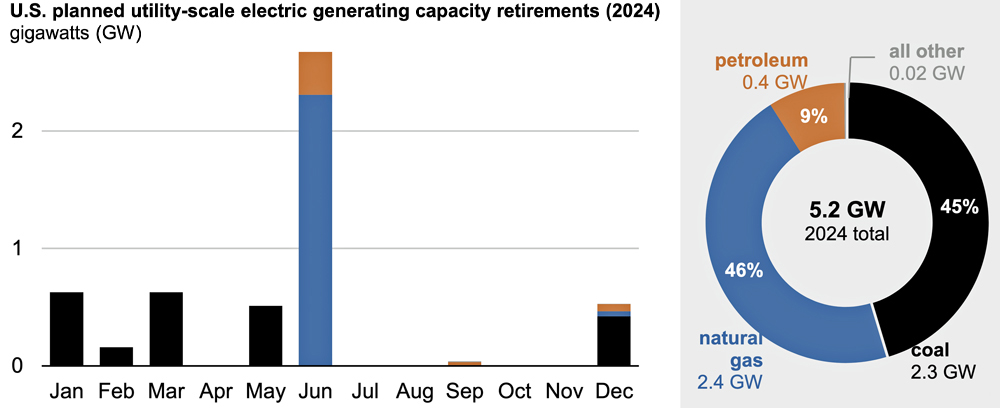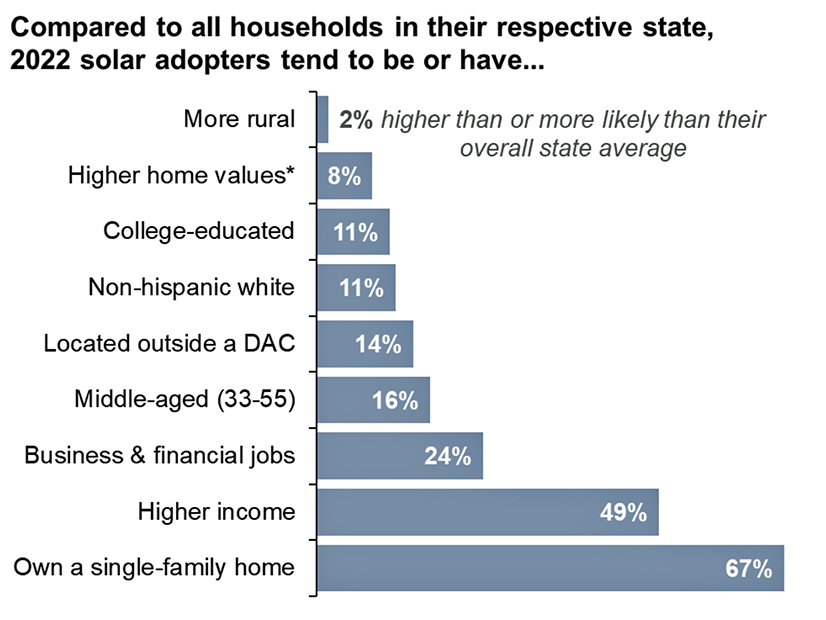The industry gyrations of 2023 have put near-term U.S. offshore wind goals out of reach, but the sector will rebound, its trade organization reports.
The Oceantic Network issued its “2024 U.S. Offshore Wind Market Report” on Feb. 20.
Looking back, it concludes the first-ever flow of electricity from a utility-scale project to the U.S. mainland, while a landmark moment, was one of the few bright spots in 2023.
The U.S. market began the year with 17.6 GW of slated offshore wind capacity, but developers terminated contracts for 51% of that amount and sought financial support for another 24% amid soaring coasts and supply chain constraints.
This had a chilling effect on the nascent domestic supply chain and industrial infrastructure that must develop if the U.S. offshore wind industry is to grow to maturity, benefiting the U.S. economy and environment at a sustainable cost to ratepayers and taxpayers.
The delays, price hikes and other fallout continue as states and developers try to regain the momentum of the early 2020s.
Officials have been putting a resolute face on the situation or sidestepping questions about their aspirational timelines, but Oceantic was blunt in its report: President Biden’s goal of 30 GW of offshore wind installed by 2030 is now out of reach, it said.
Oceantic remains optimistic about the industry’s prospects, however, and sees its recovery already beginning.
As she announced release of the report to Oceantic’s 600-plus members, CEO Liz Burdock said:
“Global economic challenges hindered our progress in 2023, bringing uncertainty to this new and growing market. However, with each step back, we’ve seen the industry press forward and are seeing a transformation in market fundamentals. New power contracts that are resistant to broader economic pressures are being executed and states like New York, New Jersey and Massachusetts remain dedicated to offshore wind development and investing in a domestic supply chain. In 2024, we are seeing the market rebound with interest rates and inflation falling along with new supply chain capacity.”
The fundamental strengths of the U.S. market remain unchanged, the report says. It’s the details that have been scrambled.
Signs For Concern, Optimism
To strain a metaphor, the U.S. offshore wind industry has a chicken-and-egg problem — but with chickens that cost hundreds of millions of dollars apiece and eggs that take years to hatch.
To generate economies of scale and lasting momentum, the industry needs certainty that someone will build its components and provide the machinery to install them. To commit to that, manufacturers need certainty that a given project will be built, or at least financed.
There were failures on both sides of the equation in 2023: Multiple offshore wind projects were put on indefinite pause and multiple supply chain bottlenecks appeared.
Completion delays on a new installation vessel were a big part of Ørsted’s decision to end Ocean Wind I and II, the first and so far only outright cancellation in the present era of U.S. offshore wind development.
Oceantic’s report highlights multiple failures in the past year and multiple signs of optimism for the years ahead, including:
-
- Federally permitted projects jumped from 0.93 to 8.3 GW in 2023 and could reach 14 GW by the end of 2024.
- States are pressing to replace canceled contracts and could reach 20 to 25 GW under contract by the start of 2025, which would be a rebound from the 17.6-GW peak before cancellations started.
- Domestic manufacturing has begun, including underwater export cable and the first-ever U.S.-built offshore substation.
- The first-ever wind energy auction in the Gulf of Mexico was a flop in 2023, generating limited interest and minimal revenue. Three or more auctions could be held in 2024.
- Multistate collaboration has begun even as individual states inevitably compete with others for limited resources. Three regional clusters — Connecticut-Massachusetts-Rhode Island, New Jersey-New York and Maryland-North Carolina-Virginia — are working together in some capacity.
- Some investors may choose to remain on the sidelines to await the results of the 2024 elections, which could have a significant impact on federal support for offshore wind development. Others might see an inviting market.
- The manufacturing and shipbuilding sectors are seeing multiple positive signals in 2024, including falling interest rates, stabilizing prices, issuance of tax credit guidance and multiple large state offshore wind solicitations being underway.
- Installation timelines have been significantly delayed; market analysts project only 14 to 16 GW of installation by 2030.
- Inflationary pressures are unlikely to ease any time soon but may not get worse in 2024.
- Compensation is rising: The awarded strike price in the 2023 solicitation was 28% higher on average than the 2021 awards in New York and 40% higher in New Jersey.
- The U.S. Department of Energy issued its Atlantic Offshore Wind Transmission Action Plan in 2023, addressing one of the most pressing needs for the entire endeavor: Getting those new megawatts to market.
- In late 2023, South Fork Wind became the first utility-scale offshore wind farm to send power to the U.S. grid. Vineyard Wind soon followed. South Fork expects to wrap construction next month. Vineyard is larger and will take longer. Installation work is set to begin this year on Revolution Wind and Coastal Virginia Offshore Wind.

